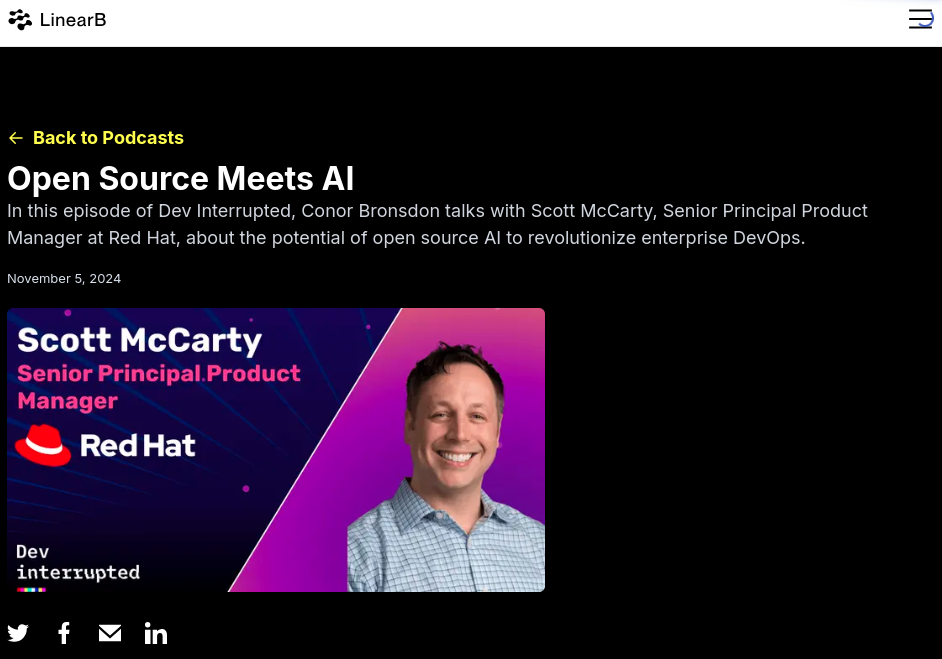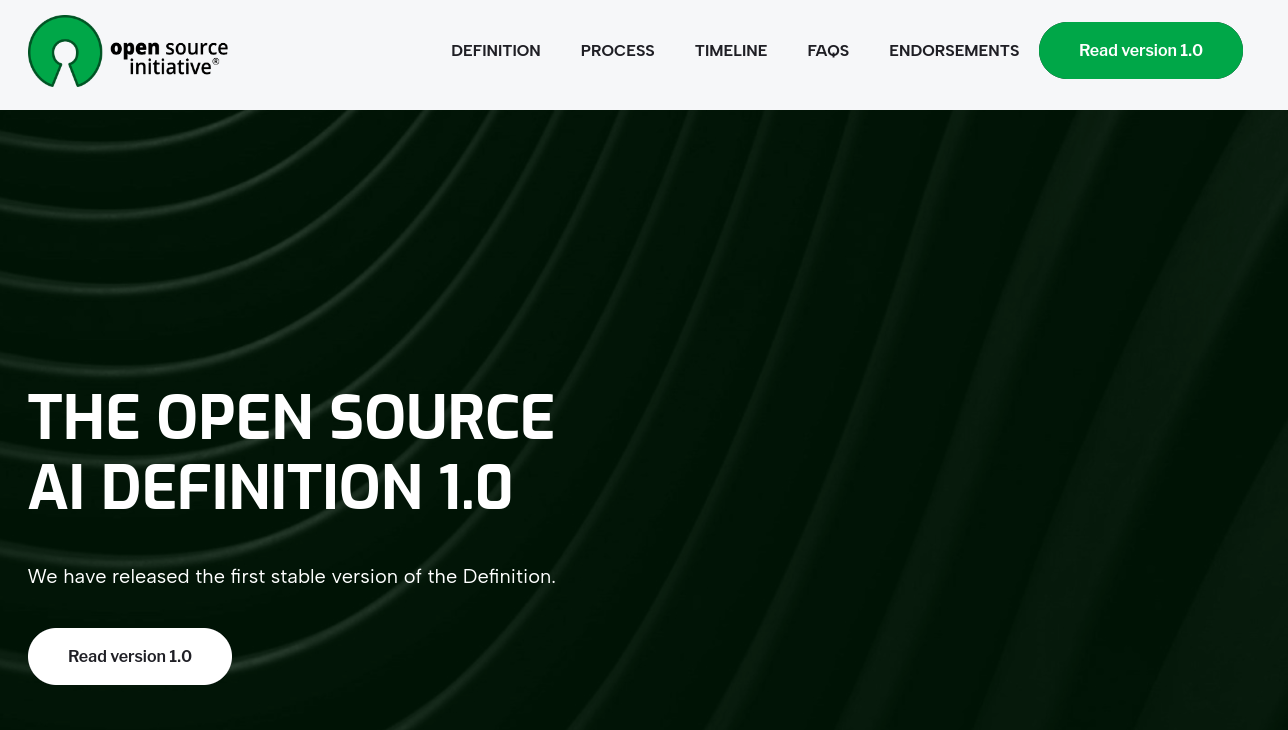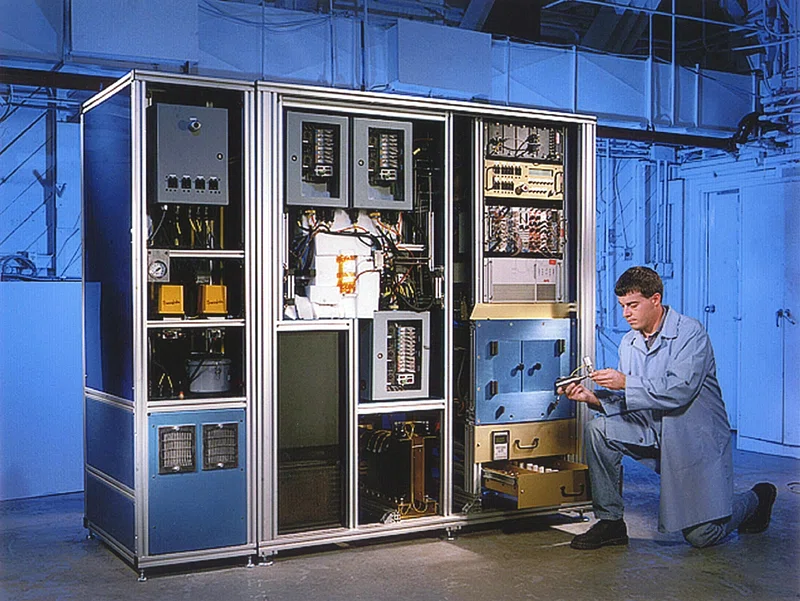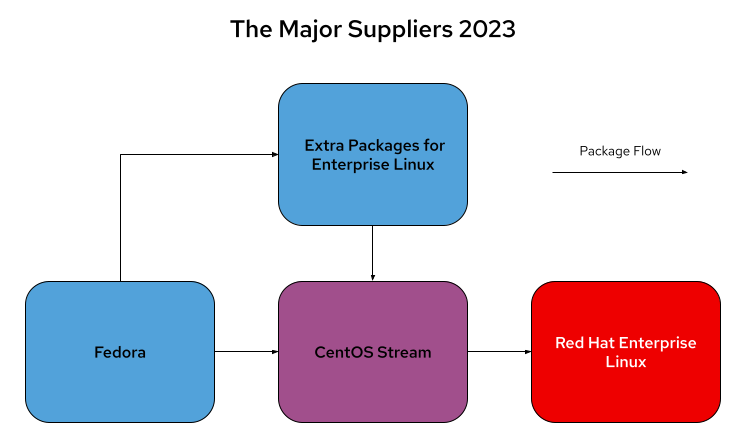Listen to the full podcast here: https://linearb.io/dev-interrupted/podcast/open-source-meets-AI
Dev Interrupted Podcast: Open Source Meets AI


Listen to the full podcast here: https://linearb.io/dev-interrupted/podcast/open-source-meets-AI

Articles/News Dev Interrupted Podcast: Open Source Meets AI – Scott McCarty The Open Source AI Definition – 1.0 Stack Overflow Podcast: The world’s largest open-source business has plans for enhancing LLMs – Scott McCarty InfoWorld: Applying the lessons of open source to generative AI – Scott McCarty InfoWorld: Kubernetes shows the way forward for AI
I recently wrote this to highlight real world use cases where I believe LLMs/Generative can actually help. Instead of fluff, I tried to break down real challenges for sysadmins. https://www.infoworld.com/article/3482087/what-generative-ai-can-do-for-sysadmins.html
I wrote an article that explains why community-driven open source is especially important with AI: https://www.infoworld.com/article/2337481/kubernetes-shows-the-way-forward-for-ai.html
Background In Part 1: Asking Other Teams to Do Something Really Hard, we explored two simple examples of when asking a person or team something really simple turns into something really inefficient. In that first article, we used simple examples, like new users asking simple questions over and over on Reddit or a mailing list.
Continue Reading “Part 2: Asking Other Teams to Do Something Really Hard: Platform Software”
Background I’ve been using Camscanner since 2017, maybe a bit before. I started using it to collect receipts for expense reports when I was traveling heavily for work as a Technical Marketing Manager. I was easily doing 100-150 nights a year, and the mundane task of keeping track of expenses can get quite tedious. Camscanner

Background There’s a common move with software teams; one team will ask another team to do something really hard so that the first team can do something really easy. Most of the time, we don’t even mean to do it. But, it causes a lot of stress and wastes a lot of time. It reminds
Continue Reading “Part 1: Asking Other Teams to Do Something Really Hard”

I want to highlight a great post by Brendan Gregg: Linux Crisis Tools. He does a walk through of a scenario that strikes me as very realistic, and brings back memories from my 15 years managing Linux servers. You can tell he has real-world sysadmin experience. I think that’s key for being a good thought

A little less than three years ago, Red Hat shifted focus in the CentOS project, from the downstream rebuild to the upstream called CentOS Stream. I wrote a heartfelt response to try and explain it better: Before You Get Mad About The CentOS Stream Change, Think About… That article seemed to help dispel some of
Continue Reading “Developing a Healthy Community in CentOS Stream”

Introduction Are you a professional Linux Systems Administrator, Architect, or Site Reliability Engineer? Do you use Fedora, Red Hat Enterprise Linux (RHEL) or a derivative in the course of your work? Do you find it difficult to keep up with all of the changes that have been going on with RHEL in the last few